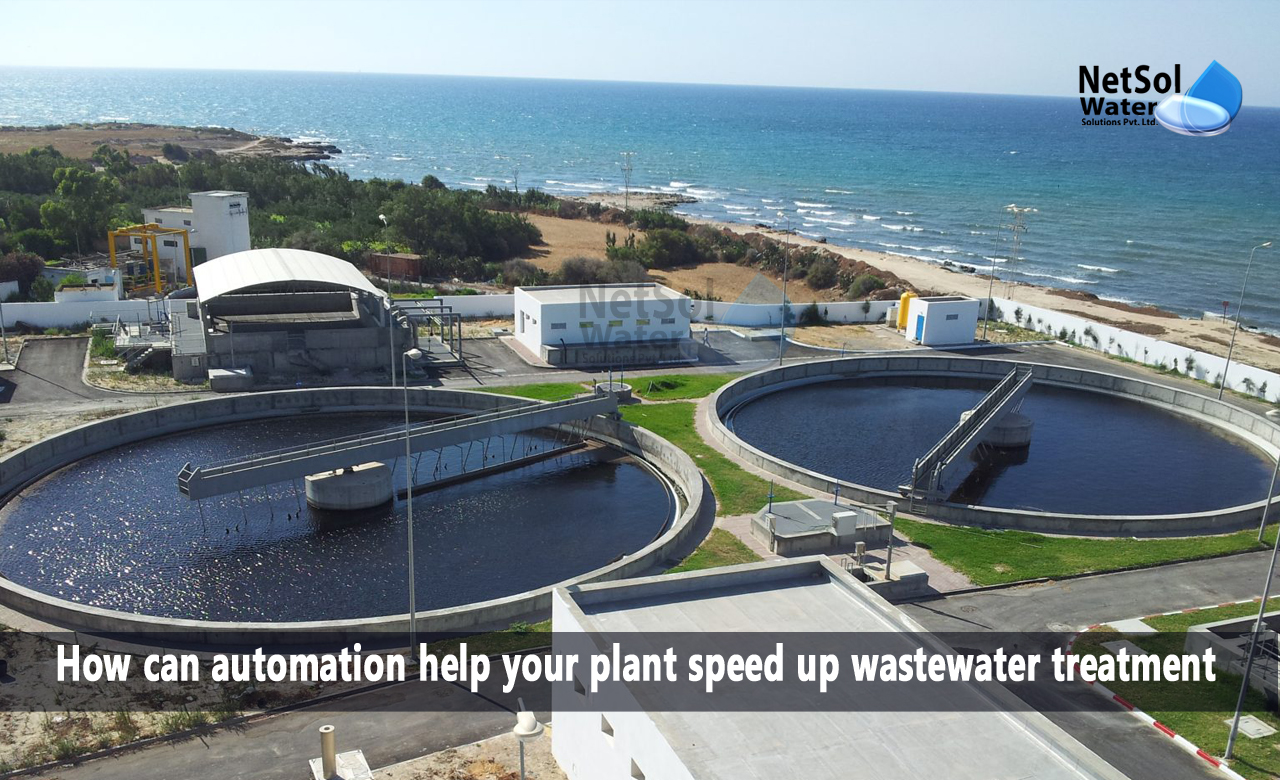How can automation help your plant speed up wastewater treatment?
Automation is becoming increasingly important in the field of wastewater treatment. By automating various processes and tasks, wastewater treatment plants can increase efficiency, reduce operating costs, and improve treatment outcomes.
In this blog, we will explore some of the ways in which automation can help streamline wastewater treatment.
1. Real-time monitoring and control:
One of the main benefits of automation in wastewater treatment is real-time monitoring and control. This allows plant operators to closely track various parameters such as flow rates, pH levels, dissolved oxygen levels, and turbidity. With this information, operators can adjust treatment processes in real-time to ensure optimal treatment outcomes.
Automated sensors and control systems can also detect malfunctions and potential issues before they become more serious. For example, if a pump is not functioning properly, an automated system can alert operators to the issue and shut down the pump before it causes damage to the system.
2. Remote monitoring and control:
Automation can also enable remote monitoring and control of wastewater treatment plants. This means that plant operators can monitor the plant from a remote location, and even adjust treatment processes remotely if necessary. This can be especially useful in cases where plant operators cannot be on-site, such as during a pandemic or other emergency situation.
Remote monitoring and control can also help to reduce operating costs, as it allows for more efficient use of staff time and resources. For example, rather than having a full team of operators on-site at all times, remote monitoring and control can allow for more flexible scheduling and staffing.
3. Data analysis and optimization:
Another important benefit of automation in wastewater treatment is data analysis and optimization. By automating data collection and analysis, plant operators can gain a more comprehensive understanding of plant performance and treatment outcomes. This information can then be used to optimize treatment processes, reduce operating costs, and improve treatment outcomes.
Automated data analysis can also help to identify trends and patterns that may not be immediatelyapparent to plant operators. For example, an automated system may detect a gradual decline in treatment efficiency over time, which could be an indication of a larger issue that needs to be addressed.
4. Energy efficiency:
Automation can also help to increase energy efficiency in wastewater treatment plants. By automating various processes such as pump control and aeration, plants can reduce energy usage and lower operating costs. For example, an automated system can adjust pump speeds based on flow rates, ensuring that energy is not being wasted on unnecessary pumping.
Automated systems can also optimize aeration processes, which can be a significant source of energy usage in wastewater treatment plants. By using sensors to detect dissolved oxygen levels and adjusting aeration rates accordingly, plants can reduce energy usage while still maintainingoptimal treatment outcomes.
5. Improved safety:
Finally, automation can help to improve safety in wastewater treatment plants. By automating various processes and tasks, plants can reduce the need for manual labor, which can be dangerous in some cases. For example, automated systems can handle tasks such as chemical dosing and sludge removal, which can be hazardous to human health.
Automated systems can also help to prevent accidents and equipment failures by detecting potential issues before they become more serious. For example, an automated system may detect a leak in a pipe before it causes a spill or environmental damage.
Conclusion:
Automation can help wastewater treatment plants streamline various processes and tasks, reducing operating costs, improving treatment outcomes, and increasing efficiency. By automating real-time monitoring and control, remote monitoring and control, data analysis and optimization, energy efficiency, and safety measures, plants can ensure optimal performance and compliance with regulatory requirements. As technology continues to advance, it is likely that automation will become an increasingly important component of wastewater treatment plant design and operation.
Do you need an advice or assistance on selecting the best water and waste water treatment unit? We have solutions for all your problems!
Let us now your problem, our experts will make sure that it goes away.
For an assistance or related query,
Call on +91-965-060-8473
Or write us at enquiry@netsolwater.com



